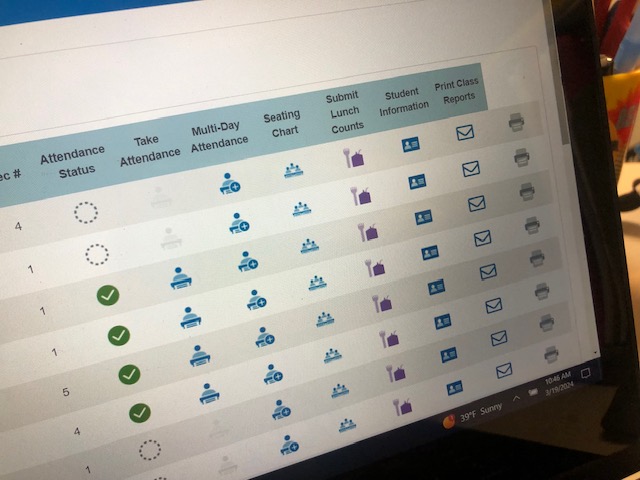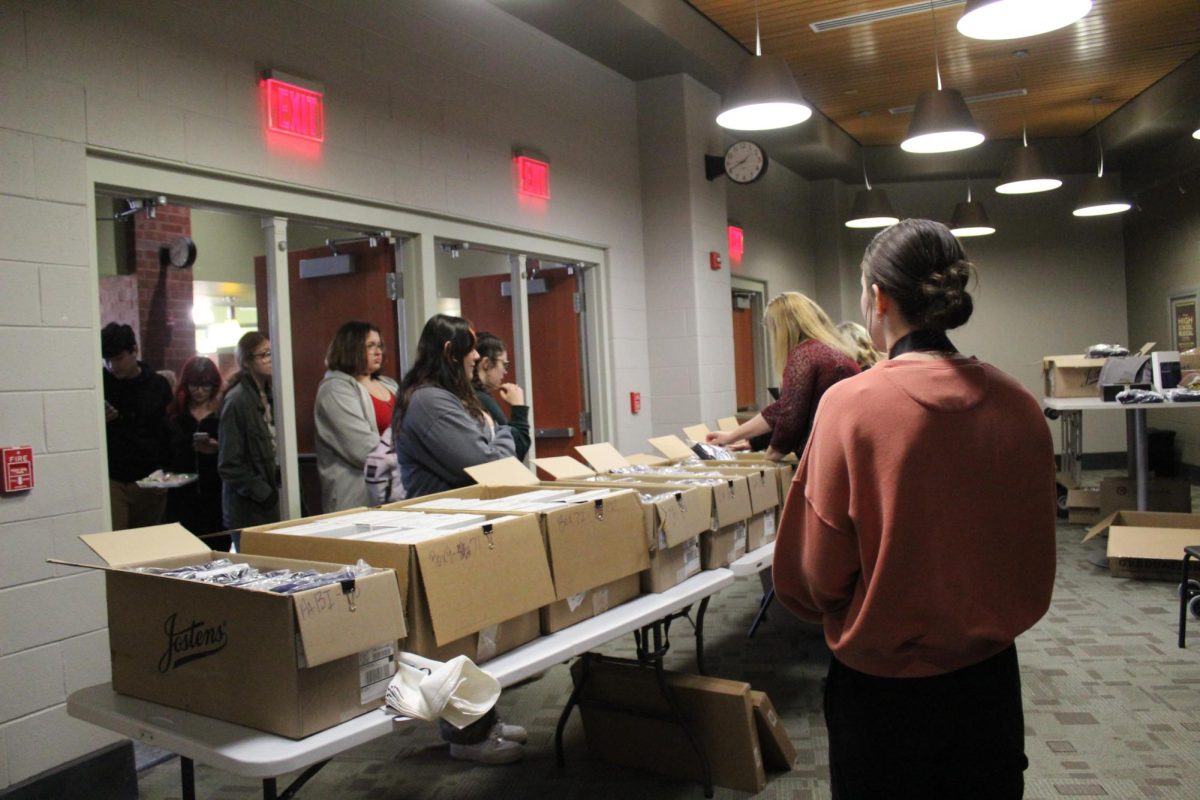After several post-pandemic years when student absences were treated with leniency, things have changed significantly for the 2024 school year as FCHS has become much stricter in its attendance expectations. Some students are hot and bothered about this change, believing that it is unfair since one’s absences do not always have a strong connection to students’ success.
The change was in response to consistently declining SOL scores since the pandemic. According to the Virginia Department of Education (VDOE), one of the main factors affecting scores is chronic absenteeism, which they describe as students who miss at least 18 days of school (which works out to about 10% of the school year). The Winchester Star, citing the VDOE, notes that “Statewide, students who were chronically absent scored 18% lower in reading and 25% lower in math than students with regular attendance.”
Posters around the FCHS, letters sent to parents, and emails to parents say absenteeism is a crucial barrier to students’ success. FCHS says that missing over 10% of school, or 18 absences per year, can lead to “poor outcomes” such as failing classes or not graduating on time. FCHS says in their All-In pledge for attendance that is on fluco.org, “Students are more likely to be involved in class, successful, and stay on track for graduation if they miss fewer than 10 school days.”
According to FCHS Assistant Principal Chad White, “With attending school, the students’ grades get higher.”
Respectfully, I disagree. As a student with 11 absences so far this year and grades ranging from As to Bs, attendance doesn’t seem quite so impactful on grades, at least for some students. Right now, the policy doesn’t seem like it would even work. Most kids don’t take it seriously, but FCPS is still working hard to change students’ attendance in many different ways.
Recently, FCPS has hired Brianna McBride as an administrator who specifically focuses on attendance. Her duties include meeting with the parents of kids that deal with chronic absenteeism which, according to White, has been an extreme help for the school.
FCHS is also working on its exam exemption policy, which is another issue altogether, as some administrators and teachers (including White) don’t believe absences should count towards the exemption policy if students have a good grade.
McBride works for FCPS in their district office and looks closely at a student’s attendance record with a behavioral and mental health team. This team decides if that student needs extra help. Many factors, like mental and physical health, come into play when deciding if a student needs to meet with the school, but attendance is the first thing they look at.
“Attendance is a big part of everything that has to do with school, including friendships and grades, so attending is an important part of a students life,” said McBride.
However, I would argue that missing 18 out of 180 days of school isn’t a lot and in reality, if you manage your time well and work hard, these absences shouldn’t necessarily impact your success. So if everyone is affected differently when it comes to absenteeism, is it fair to enforce the same policy on everyone?
Ultimately, attendance doesn’t seem like a major priority for most students if they keep their grades up, pass their classes and have a social life. Students will simply get their parents to call Attendance if they miss a day and most parents will allow their kids to be absent if they are on top of school work. So does the policy really impact students?
“I don’t think the policy really does much. I’m going to skip class if I don’t have anything to do and my grade is good,” says junior Morgan Donnelly.







